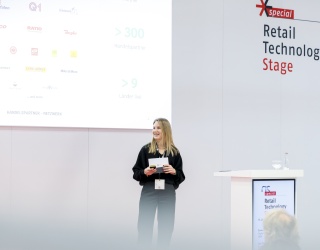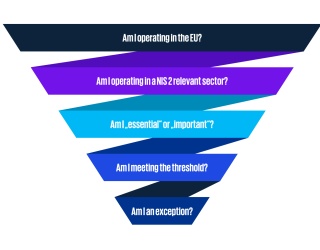Western businesses look set to be left behind in competitive global markets, as ambitious companies in the emerging nations embrace cloud computing in order to drive growth and worldwide reach. According to a new study conducted by GfK Custom Research in Brazil, China, Germany, India, the UK and the US, affinity with cloud services is especially high in emerging markets. The GfK survey shows that cost is not only perceived as a minor benefit of these web-based solutions, but can sometimes even be a possible barrier to acceptance. Data security, often cited as the main argument against outsourced solutions, is now regarded by many as one of the principal advantages of cloud services.
When asked about the concept of “cloud computing”, offsite data storage is the first thing that comes to the minds of IT decision makers. They understand that the provision of offsite data storage allows access to company data from any location and independently of a device, plus a great deal of flexibility in the use of infrastructures and applications. Decision makers in Europe and the US often spontaneously associate security issues and risks with offsite data storage and only a minority of companies in these countries has more positive associations such as cost-effectiveness and flexibility. In the emerging markets of Brazil, China and India the picture is completely different. Here the ideas most associated with cloud computing are cost-effectiveness, flexibility and security of access. Only a minor proportion of decision makers in the emerging markets emphasize risks and insecurities.
Higher penetration and potential in emerging markets In the emerging markets of Brazil, China, and India, a broad range of cloud solutions have already been widely accepted. Predominantly cloudbased infrastructure shows a comparatively high penetration rate. Both the degree of interest and level of penetration are largely independent of company size. Widespread strong intentions to implement cloud services within the next two years promise considerable growth in all categories of cloud computing in these countries. In terms of usage as well as structure, the situation is entirely different in established markets like Germany, the UK and the US. Smaller companies with between one and nine employees have hardly been reached at all by cloud services and the relevance of cloud solutions is higher the larger the companies are, depending on the application though. Plans indicate a rapid growth in all segments, with one exception: small companies in Germany. This is surprising as the benefits of web-based solutions for this target group are obvious because a high share of employees work out of office, and resources for maintenance and administration of IT are scarce.
Data security and data accessibility top the list of benefits
Companies of different sizes and in different countries have varying views of why cloud solutions make sense. Regardless of the concerns in the Western markets, data security and data access from all locations turn out to be top drivers of interest in cloud computing across the board. For nearly
half of the IT decision makers interviewed, the topic data security, i.e. the protection of data against unauthorized access or theft, is one of the Top-3 drivers to use cloud computing services. Data security, which was often held up as the main reservation regarding outsourced solutions, is now seen by many as one of the principal advantages of cloud services. For another third, data access from everywhere is among the top drivers for their companies’ interest in cloud computing. When it comes to moving beyond the merely technical, infrastructurerelated benefits of cloud solutions and transforming these into business advantages, decision makers in emerging markets take a more strategic view. In Brazil (16%) and India (19%), they emphasize the global reach of business as a main driver of usage, and Chinese decision makers highlight the possibility of concentrating on core business (17%) and the opportunities for rapid growth (22%).
Cost issue more of a showstopper than a door-opener
Despite often being mentioned as a benefit of cloud services, data security still emerges as an area of concern in regard to cloud computing. But only in Germany this topic could be considered as a real showstopper.
Similar to data security, the cost issue is ambiguous. Although it may appear to be common sense that the use of cloud services is a way of reducing the total cost of ownership of a company’s IT resources, many companies name cost issues as a relevant reservation. This concerns not only the
costs of migration, which ranks for a third among their Top 3 reservations against cloud computing, but also, and to an even greater extent, it concerns the costs of the services themselves which 42% name as one of their top reservations. In addition, cost advantages are not seen as a prominent
benefit of cloud solutions, so at present, this topic is obviously more a barrier to growth than a real door-opener. Although not top-of-mind, potential clients’ fear of downtime and being too
dependent on a supplier are significant barriers as well.
Top awareness for Amazon, Apple, Google and Microsoft
Across all countries, the main suppliers associated with cloud computing are Amazon, Apple, Google and Microsoft. In China and India, other hardware and software manufacturers like IBM and Oracle also enjoy top-ofmind awareness. Brazilian decision makers think of Google and Microsoft, only.
But awareness only is not a guarantee for being selected as a partner. Companies have to trust cloud providers, to let them store and process their data. When it comes to brand confidence, decision makers in the emerging markets are generally far more trusting of global solution providers than decision makers in the other countries. This is another indication that cloud solutions are taking off in the emerging markets, while businesses in Europe and the US are a little more hesitant.
Microsoft holds the leading position in terms of being trusted as a cloud solution provider, with 66% of all IT decision makers naming it. But this lead position is challenged by IBM (63%) and Google (58%) who are very close behind. The leading network operators face a considerable gap in trust compared to the Top 3 group of Microsoft, Google, and IBM. Only in Germany do IT decision makers show different attitudes when it comes to brand trust: here, IBM and Deutsche Telekom enjoy significantly more confidence than Microsoft and Google.
Nevertheless, it is clear that there are plentiful opportunities for all global providers, as well as network operators, to earn their share in the cloud revolution, which is already underway. Suppliers that manage to communicate the security of their approach and provide transparency and control to
their clients will surely be the winners in this competition.
About the survey
In June 2011, GfK conducted 1,800 interviews with IT decision makers in Brazil, China, Germany, India, United Kingdom and the USA. The interviews were carried out in three company size categories (1-9 employees, 10-249 employees, 250 and more employees).










